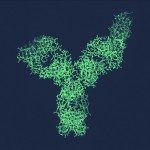Lien vers Pubmed [PMID] – 22788741
Fundam Clin Pharmacol 2013 Oct;27(5):557-69
Phytochemical compounds are emerging as a new generation of anticancer agents with limited toxicity in cancer patients. The purpose of this study was to investigate the potential impact of thymoquinone (TQ), the major constituent of black seed, on survival, invasion of cancer cells in vitro, and tumor growth in vivo. Exposure of cells derived from lung (LNM35), liver (HepG2), colon (HT29), melanoma (MDA-MB-435), and breast (MDA-MB-231 and MCF-7) tumors to increasing TQ concentrations resulted in a significant inhibition of viability through the inhibition of Akt phosphorylation leading to DNA damage and activation of the mitochondrial-signaling proapoptotic pathway. We provide evidence that TQ at non-toxic concentrations inhibited the invasive potential of LNM35, MDA-MB-231, and MDA-MB231-1833 cancer cells. Moreover, we demonstrate that TQ synergizes with DNA-damaging agent cisplatin to inhibit cellular viability. The anticancer activity of thymoquinone was also investigated in athymic mice inoculated with the LNM35 lung cells. Administration of TQ (10 mg/kg/i.p.) for 18 days inhibited the LNM35 tumor growth by 39% (P < 0.05). Tumor growth inhibition was associated with significant increase in the activated caspase-3. The in silico target identification suggests several potential targets of TQ mainly HDAC2 proteins and the 15-hydroxyprostaglandin dehydrogenase. In this context, we demonstrated that TQ treatment resulted in a significant inhibition of HDAC2 proteins. In view of the available experimental findings, we contend that thymoquinone and/or its analogues may have clinical potential as an anticancer agent alone or in combination with chemotherapeutic drugs such as cisplatin.

